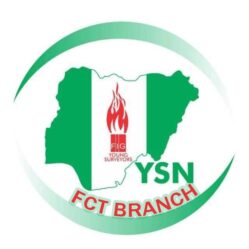Self-development in the Surveying profession is crucial for staying competitive and effective in a field that is constantly evolving with technological advancements and changing regulations. Here are several strategies and areas for self-development that surveying professionals can focus on:
1. Continuous Education and Training
➡ Advanced Degrees and Certifications: Pursue higher education such as a Master’s degree in surveying, geomatics, or a related field to deepen your knowledge and open up advanced career opportunities. Obtain certifications/licenses like the Surveyor’s Council of Nigeria (SURCON).
➡ Workshops and Seminars: Attend industry conferences, workshops, and seminars to stay updated on the latest trends and technologies.
➡ Online Courses and Workshops: Engage in online courses, webinars, seminars, and workshops on platforms like Coursera, Udemy, or industry-specific providers to stay updated with the latest technologies and methodologies.
2. Technological Proficiency
➡ Software Skills: Gain proficiency in industry-standard software such as AutoCAD, GIS (Geographic Information Systems), and specialized surveying software like Trimble or Leica Geosystems
➡ Equipment Familiarity: Stay current with the latest Surveying instruments and technologies, such as drones, GPS, and LiDAR.
➡ Emerging Technologies: Stay abreast of and learn to use new technologies such as drones for aerial Surveying, LiDAR for high-precision measurements, and 3D modelling tools.
3. Professional Networking
➡ Join Professional Organizations: Become a member of organizations like FIG (International Federation of Surveyors), Nigeria Institution of Surveying (NIS), APPSN, WIS and YSN to network with peers, attend conferences, and access resources.
➡ Networking Events: Participate in industry events and online forums to build relationships with other professionals, which can lead to new opportunities and insights.
➡ Mentorship: Seek mentorship from experienced professionals in the field to gain insights and guidance on career progression and technical challenges.
4. Soft Skills Enhancement
➡ Communication Skills: Improve verbal and written communication skills to effectively convey findings and work with clients and colleagues.
➡ Project Management: Develop skills in project management to handle complex projects efficiently, including budgeting, scheduling, and resource management.
➡ Leadership and Teamwork: Enhance leadership abilities and learn to work effectively within a team.
5. Practical Experience
➡ Field Work: Gain hands-on experience by participating in diverse Surveying projects. This helps in understanding practical challenges and applying theoretical knowledge.
➡ Internships and Part-time Jobs: Engage in internships or part-time positions while studying to build practical skills and professional connections.
6. Research and Development
Innovative Techniques: Engage in research to develop new surveying techniques and methodologies. Publish findings in professional journals.
➡ Problem-Solving: Work on enhancing problem-solving skills to tackle unique and challenging Surveying tasks.
7. Specialization
➡ Niche Areas: Consider specializing in areas such as hydrographic Surveying, cadastral Surveying, Engineering Surveying, or geodetic Surveying to become an expert in a specific field.
➡ Interdisciplinary Skills: Develop skills in related fields such as Civil Engineering, Environmental science, or Urban planning to broaden your expertise and service offerings.
8. Mentorship and Teaching
➡ Mentorship: Mentor junior Surveyors to share knowledge and experience, which can also help you refine your own understanding and skills.
➡ Teaching: Consider teaching Surveying courses at local colleges or universities to stay engaged with the academic side of the profession.
9. Health and Well-being
➡ Physical Fitness: Maintain physical fitness to handle the demands of fieldwork, which often requires walking long distances and carrying equipment.
➡ Work-Life Balance: Develop a healthy work-life balance to avoid burnout and maintain long-term productivity and enthusiasm for the profession.
10. Personal Development
➡ Time Management: Improve your time management skills to handle multiple projects efficiently.
➡ Stress Management: Develop strategies for managing stress and maintaining work-life balance, which is crucial in a demanding profession like Surveying.
11. Global Perspective
➡ International Standards: Familiarize yourself with international surveying standards and practices, especially if working on projects with a global scope.
➡ Cultural Competence: Develop an understanding of cultural differences and practices in different regions to work effectively in diverse environments.
Self-development in Surveying involves a balanced approach combining technical expertise, professional networking, continual education, and personal growth. By investing in these areas, Surveying professionals can advance their careers, stay competitive, and contribute significantly to their field.


